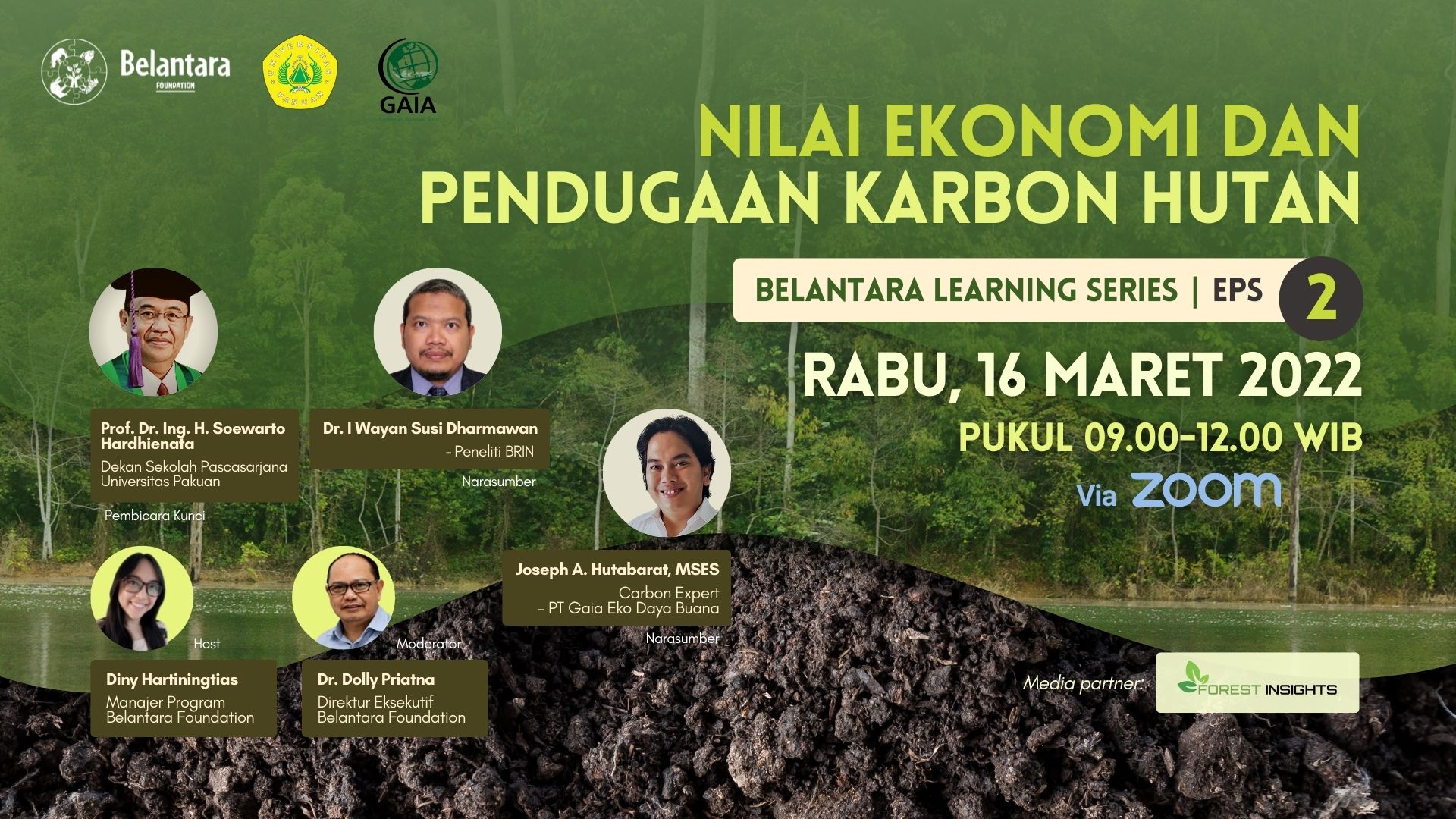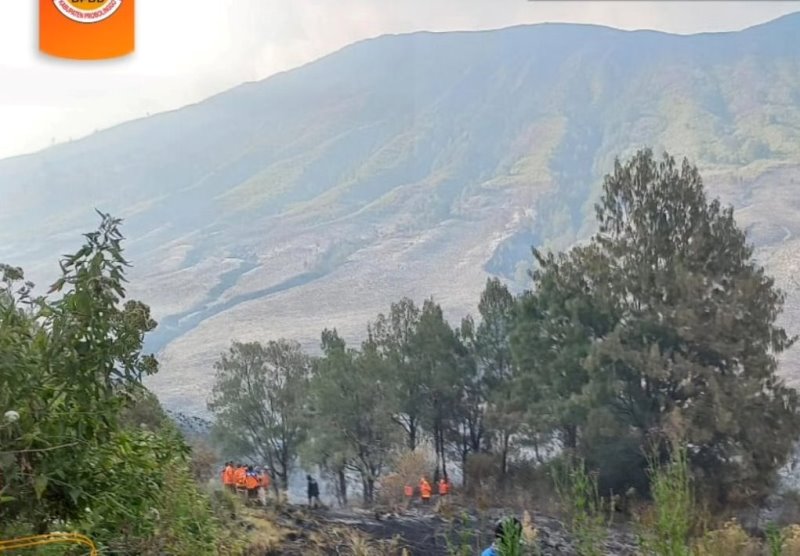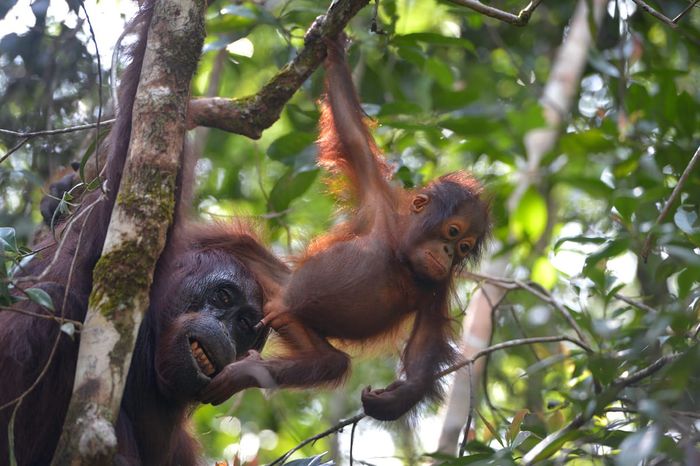Belantara Leaning Series Eps. 2: “Forest Carbon Economic Value and Estimation”
Belantara Learning Series (BLS) Eps.2 was carried out on Wednesday (16/03). BLS Eps.2 brought up the topic of “Forest Carbon Economic Value and Estimation”. This event was held using Zoom Meeting and was broadcasted live through the Belantara Youtube Channel from 9 – 12 am Western Indonesian Time. BLS Eps.2 was a collaboration between Belantara Foundation, Study Programme of Environmental Management Graduate School of Universitas Pakuan, the National Research and Innovation Agency (BRIN), and PT. Gaia Eko Daya Buana.
“Through Belantara Learning Series Episode 2, we hope conservation practitioners and researchers can share experiences and skills in forest conservation efforts in Indonesia. In addition, participating university students and the general public can enrich their knowledge on how to calculate carbon emissions and their economic value. Despite still in the midst of a pandemic that has not fully subsided yet, we hope by conducting BLS Eps.2 online, we maintain our enthusiasm in the spirit of forest and biodiversity conservation using the carbon approach,” said Dr. Dolly Priatna, the Executive Director of Belantara Foundation.
BLS Eps. 2 discussed additional potentials of forests, besides its benefits to health and the environment, but also its carbon potential.
“We have not heard much about the forest’s benefits outside health and environment, because the narration that has been going around in the public has only been limited to these two benefits. But now, I think we have to start to look at other perspectives regarding on benefits of conserving the forest, namely incentive from forest emission reduction. Specifically, Indonesia is a country with a very large forest area that functions as a carbon storage, and going forward it is essential to contribute on implementing the green economic development”, Dr. I Wayan Susi Dharmawan, BRIN researcher, added.
Furthermore, BLS Eps.2 discussed the overview on the technical calculation aspect, the latest policy on carbon forest, and its relation to NDC (Nationally Determined Contribution), which is Indonesia government’s commitment. Previously, Indonesia has set a greenhouse gas emission reduction target of 29% by 2030 and has targeted Zero Net Emission by 2060.
Joseph A Hutabarat from PT Gaia Eko Daya Buana revealed that adaptation and mitigation activities through carbon trading are aimed to prevent climate change impact and achieve the NDC target. Carbon trading will be carried out through transactions of purchasing the Certified Emission Reduction (CER) certificate from developed countries to developing countries. Before obtaining CER, the developing countries must go through a series of steps, including a pre-feasibility study, feasibility study, document validation, and so on.













